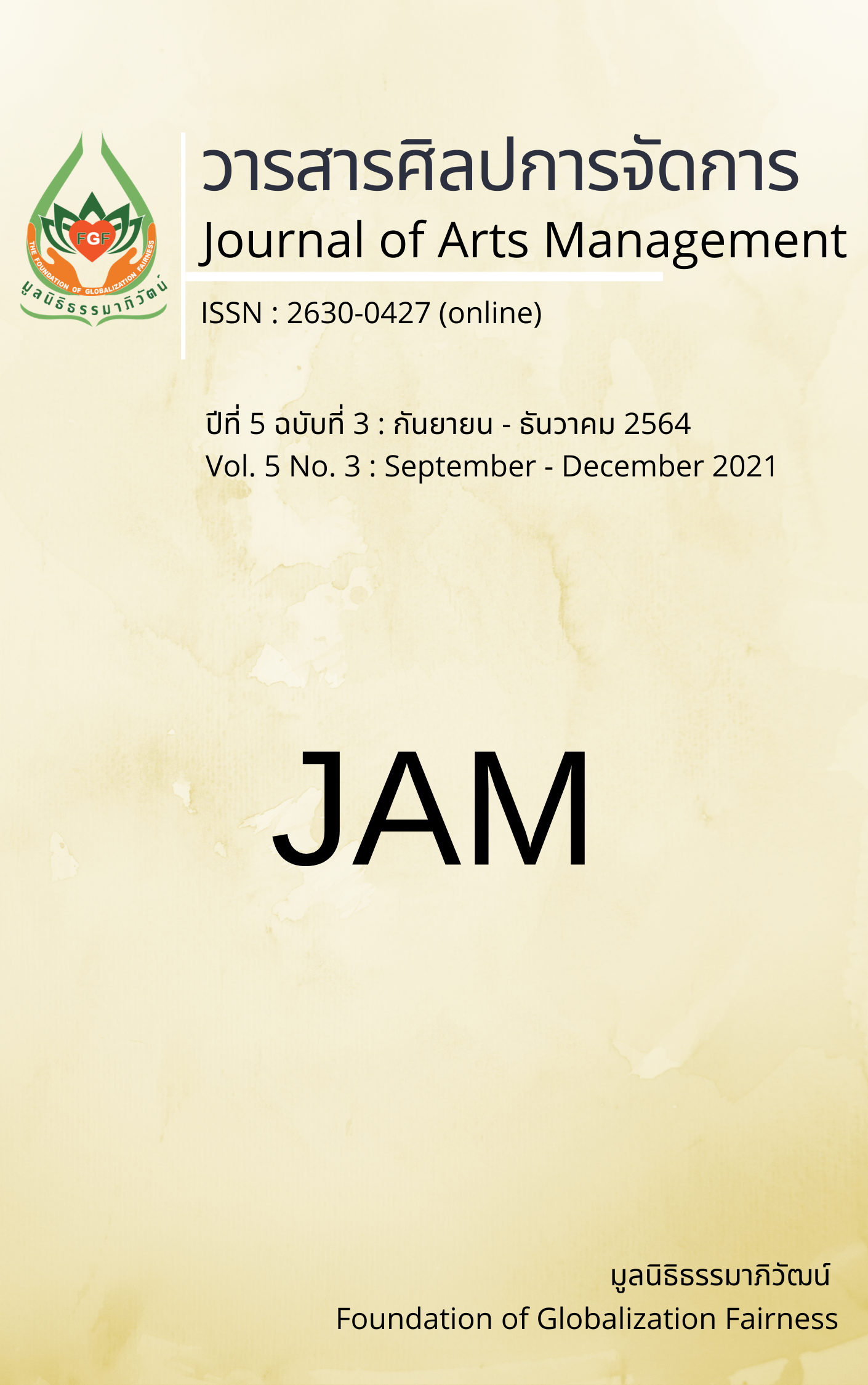Marketing Strategy of Commercial Bank in Terms of Technology for Financial Transactions
Main Article Content
Abstract
The purposes of this article aimed to study 1) the marketing strategies in the context of service quality and satisfaction of service used in response to financial technology; 2) the acceptance of technology through the perceived benefits and perceived of ease; and 3) the use of research results as a guideline for technology development in financial technology to bank to formulate development strategies and expanding customer base in the future by using the framework for study in concepts and theories on quality and marketing service strategy. The customer’s satisfaction technology choices. The example group was entrepreneurs and small and medium enterprises that use financial technology. An example of 400 offices located in Bangkok, Thailand. The tools used in the research were an online questionnaire. The statistics used in data analysis were frequency, percentage, and calculation Pls SEM.
The study was found as follows: Service quality positively affects the perceived benefits and perceived of ease 0.038, 0.374 statistically significant service marketing strategies have a positive impact on perceived benefits and perceived of ease 0.975, 0.135 Statistically significant. The satisfaction of the users has a negative impact on the perceived benefits and perceived of ease 0.255, 0.556. And the perception benefits and perceived of ease has a positive impact on technology 0.970, 0.070 and perceived ease had a positive impact on perceived benefit 0.182 statistically significant.
Article Details
Views and opinions appearing in articles in the Journal of Arts of Management It is the responsibility of the author of the article. and does not constitute the view and responsibility of the editorial team I agree that the article is copyright of the Arts and Management Journal.
References
Chavisuk, S., & Wongchaturaphatthra, S. (2012). Information technology acceptance theory[Master’s Thesis, King Mongkut's Institute of Technology Ladkrabang].
Chunhachinda, P. (2019). Digital transformation and the progress of Thailand’s fintech. Suthiparithat, 33(106), 251-264.
Davis, F. D., Bagozzi, R. P., & Warshaw, P. R. (1989). User acceptance of computer technology: A comparison of two theoretical models. Journal of Management Science, 35(8), 982–1003.
Douglas, C. M. (2007). Design and analysis of experiments (6th ed.). John Willey & Sons.
Etzel, M. J. (2014). Marketing (12th ed.). McGraw-Hill.
Hoelter, J. W. (1983). The analysis of covariance structures: Goodness-of-fit indices. Sociological Methods and Research, 11(3), 325-344.
Johnson, V, L., Kiser, A., Washington, R., & Torres, R. (2018). Limitations to the rapid adoption of M-payment services: Understanding the impact of privacy risk on M-payment services. Computers in Human Behavior, 79, 111-122.
Khumanichirakun, S. (2017). Marketing strategies affecting decision making to use cardless withdrawal on mobile banking application[Master’s Thesis, Thammasat University].
Kline, R. B. (2011). Principles and practice of structural equation modeling (3rd ed). The Guilford Press.
Kotler, P. (2000). Marketing management. Prentice-Hall.
Kolter, P. (2010). Marketing management. (The Millennium ed.). Prentice-Hall.
Kotler, P., & Keller, K. L. (2006). Marketing management (14th ed.). Pearson Education.
Mano, P. (2019). The impact of digital disruption to the education. Journal of Industrial Education, 18(1), 1-6.
Mullins, L. T. (1985). Management and organizational behavior. Pitman Publishing.
Parasuraman, A., Zeithaml, V.A., & Berry, L.L. (2013). A conceptual model of service quality and it’s implications for future research. Journal of Marketing, 49, 41-50.
Ponte, E., Carvajal-Trujillo, E., & Escobar-Rodríguez, T. (2015). Influence of trust and perceived value on the intention to purchase travel online: Integrating the effects of assurance on trust antecedents. Tourism Management, 47, 286-302.
Saetim, S. (2019). Mobile banking acceptance in Thailand: An empirical study. The Journal of Social Communication Innovation, 7(2), 106-121.
Saisanan Na Syutthaya, A. (2015). The satisfaction of online banking users in Bangkok and vicinity areas[Master’s Thesis, Bangkok University].
Serirat, S. (2003). Marketing management. Thammasarn.
Thanacharoenphisan, E. (2011). Personnel’s awareness and acceptance on implementation of environmental management system (ISO 14001) in public organizations: A case study of office of natural resources and environment policy and planning[Master’s Thesis, National Institute of Development Administration].
Thanawan, S. (2016). The financial technology adoption model of M-banking. Thammasat University.
Wimunchat, C. (2010). The satisfaction of employment-age on the BTS sky train users[Master’s Thesis, Ramkhamhaeng University].


